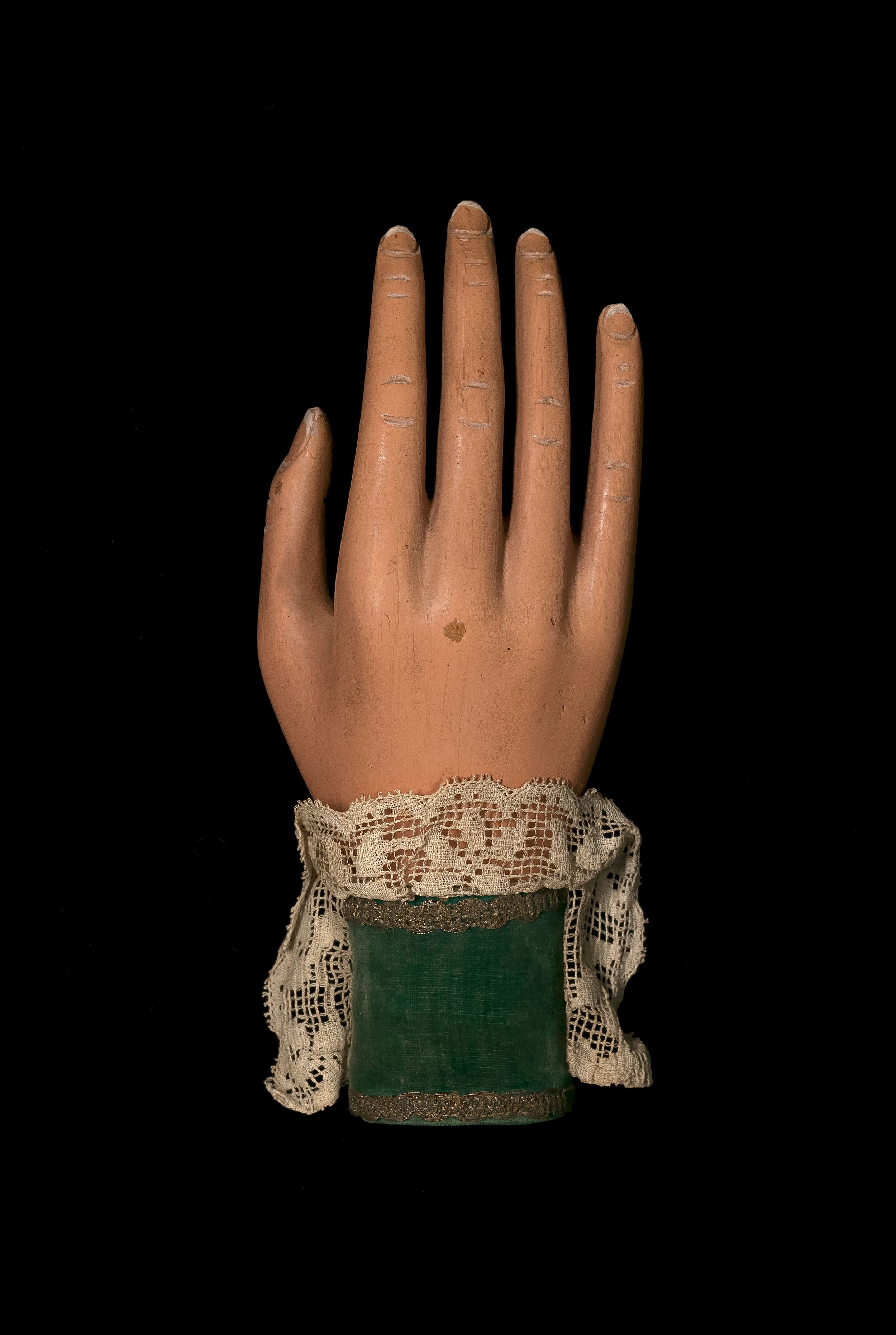Rapping Hand, a life size model of a female hand which was probably controlled pneumatically with concealed rubber tubing. Courtesy of Senate House Library
As a child I hated magic tricks. Make someone feel they are duped, and they’ll forever fear being deceived again.
The Psychology of Magic exhibition at the Wellcome Collection examines the recent history of trickery, and the close history between magic and science. For centuries, magic tricks have entertained us. We want to have our rational minds shaken, as evidenced in the way we seek that suspended sense of disbelief in stories.
The exhibition is broken down into three themes. The Medium explores the mass appeal of seances and spiritualism in the Victorian era, and their key role in establishing psychology as a scientific discipline. Expect curious items such as Victorian ouija boards, Harry Houdini’s ‘Bell Box’, doctored images and video tapes. Misdirection exposes the ways magicians ensure you are distracted from their methods, while mentalism shows how magicians can influence people, revealing the universality of cold readings. Regular performances from magicians, psychologists and neuroscientists reveal how magic tricks work.
In an in-gallery performance, Professor Christopher French, Head of the Anomalistic Psychology Research Unit at Goldsmiths and fellow of the Committee for Skeptical Inquiry, spoke about how cognitive biases shape our perceptions. He cited as an example reverse speech therapy, the pseudoscientific belief that unconscious messages are delivered when speech - or songs - are reversed. After playing Lady Gaga’s ‘Pararazzi’ backwards, he asked a large crowd what we thought the reversed lyrics sounded like - everyone shrugged. It sounded like gibberish. He then showed us the purported “real” message: "evil save us... The star above he model on the arts of Lucifer.” When he replayed it, with this new information we could at least hear some of the words.
This is an example of top down processing, the idea we form our perceptions starting from a larger, general picture before working our way to a more detailed picture as we’re given contextual information. Another example of top down processing can be seen when the Latin O Fortuna is misheard and wrongly subtitled in English. Once you’ve read the misheard lyrics, you can’t really unhear them.
It’s good to think critically when you approach magic - or anything unknown. Especially when deception can be so lucrative. But importantly, at the end of his demonstration, Professor French cautions: “sometimes we can be too skeptical, and we can miss things that are really there.”
Smoke and Mirrors: The Psychology of Magic is at the Wellcome Collection, London, from 11 April to 15 September 2019. Free admission.

